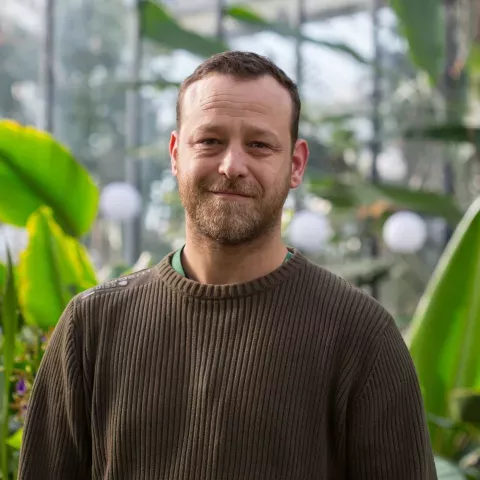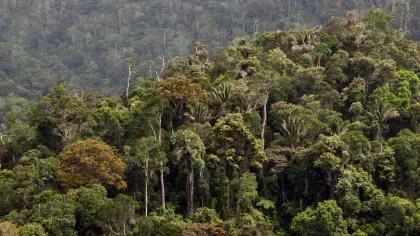Dr Dion S Devey
Laboratory Manager (Molecular)

I am responsible for managing the RBG Kew molecular biology and genetics laboratory facilities. We undertake a range of highly-specialised techniques, including DNA extraction, plant and fungal Sanger sequencing, next generation sequencing (MiSeq) and population-genetics (DNA micro-satellites and Amplified Fragment Length Polymorphisms). We train and supervise staff, students and visiting researchers, and support Royal Botanic Gardens Kew science projects, by providing experimental design, project management, troubleshooting and costing for grant submissions. I also work closely with the Kew Innovation Unit to undertake ethical commercial activities and am leading the development of novel techniques to further expand Kew’s fundraising capabilities.
Research Interests:
- Exploring the boundaries between population genetics and phylogenetics, and using orchids as a model system for the investigation of species-delimitation issues and the downstream impact on conservation recommendations; Large scale bar-coding of the Angiosperms.
- Investigating the molecular systematics, evolution and biogeographical distribution of several plant families (including: Asphodelaceae, Hyacinthaceae, Hypoxidaceae, Orchidaceae, Pandanaceae, Sapindaceae).
- BSc (Hons), DeMontfort University, Leicester, 2000
- PhD, Reading University, UK, 2007
Devey, D. S., Forest, F. L., Rakotonasolo, F., Ma, P., Dentinger, B. T. M. & Buerki, S. (2009).
A snapshot of extinction in action: The decline and imminent demise of the endemic Eligmocarpus Capuron (Caesalpinioideae, Leguminosae) serves as an example of the fragility of Madagascan ecosystems.
South African Journal of Botany 89: 273-280.
Devey, D. S. & Clarkson, J. J. (2009).
A stuttering start to plant DNA barcoding: microsatellites present a previously overlooked problem in non-coding plastid regions.
Taxon 58: 7-15.
Devey, D. S., Bateman, R. M., Fay, M. F. & Hawkins, J. A. (2009).
Friends or Relatives? Phylogenetics and Species Delimitation in the Controversial European Orchid Genus Ophrys.
Annals of Botany 101: 385–402.
Devey, D. S., Bateman, R. M., Fay, M. F. & Hawkins. J. A. (2009).
Genetic structure and systematic relationships within the Ophrys fuciflora aggregate (Orchidaceae: Orchidinae): high diversity in Kent and a wind-induced discontinuity bisecting the Adriatic.
Annals of Botany 104:483-95.
